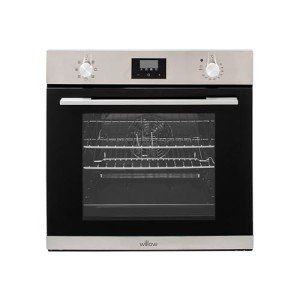The Benefits and Design Considerations of a Kitchen with a Built-In Oven
In modern kitchen design, built-in ovens have ended up being a popular function, providing both functionality and looks that accommodate modern-day way of lives. This short article explores the advantages of including a built-in oven into the kitchen area and highlights important design considerations to make sure a cohesive and useful kitchen environment.
Comprehending Built-In Ovens
Built-in ovens are developed to be flawlessly integrated into kitchen cabinets, which differentiates them from standard freestanding ovens. These appliances can be found in various configurations, consisting of single-wall ovens, double-wall ovens, and even microwave that share the exact same integrated cabinet area.
Typical Types of Built-In Ovens
| Type | Description | Perfect Use |
|---|---|---|
| Single Wall Oven | A standard oven with one compartment for baking and roasting. | Little kitchen areas or daily baking. |
| Double Wall Oven | 2 different oven compartments enabling synchronised cooking. | Large households or regular bakers. |
| Combination Oven | A microwave and traditional oven in one system. | Quick meals and flexible cooking options. |
| Steam Oven | An oven developed specifically for steam cooking. | Health-focused cooking and detailed recipes. |
Benefits of Built-In Ovens
The appeal of built-in ovens can be credited to several crucial advantages, including:
1. Area Efficiency
Built-in ovens are created to fit within existing cabinets, freeing up valuable floor space. This feature is particularly beneficial in smaller sized kitchen areas, where every square foot counts.
2. Streamlined Appearance
The seamless integration of a built-in oven creates a sleek appearance in the kitchen. Readily available in different surfaces, built-in ovens can match or complement cabinets, providing a modern and unified style aesthetic.
3. Improved Functionality
Built-in ovens often offer sophisticated features, such as wise innovation, multiple cooking modes, and even self-cleaning alternatives. This can enhance cooking experiences and enhance the effectiveness of meal preparation.
4. Improved Accessibility
With proper installation of a built-in oven, users can increase ease of access, preventing the requirement to flex over to reach a lower oven compartment. Eye-level cooking appliances permit cooks to monitor their meals easily and reduce the risk of burns from flexing down to check on a baking product.
5. Energy Efficiency
Numerous modern built-in ovens use innovative cooking innovation that can cause lower energy usage. Functions like convection cooking can lower cooking times while making sure even heating, eventually conserving energy.
Design Considerations for a Kitchen with Built-In Ovens
While built-in ovens use lots of benefits, careful consideration in the design stage is important to optimize their benefits and incorporate them efficiently into the kitchen layout. Here are some crucial elements to think about:
1. Cabinet Configuration
When preparing for a built-in oven, property owners must carefully think about cabinet designs and configurations. Sufficient ventilation is important for correct operation. Ovens And Hobs to leave adequate space for air flow, which can differ depending on the oven design.
2. Height Preference
The setup height of the oven must be figured out based upon the main users. A built-in oven situated at eye level can make it easier to use, specifically for those who regularly prepare.
3. Complementary Appliances
In a kitchen setting, built-in ovens often complement other built-in appliances such as microwave ovens and warming drawers. Choosing appliances that work well together can further improve the kitchen's style.
4. Aesthetic Choices
Selecting surfaces and colors that harmonize with the general kitchen design is important. Built-in ovens are available in numerous options, including stainless steel, black, and even custom-made cabinet ends up that can disappear effortlessly into the cabinetry.
5. Budget Considerations
Built-in ovens can range substantially in price, from economical choices to high-end models filled with features. It's necessary to set a realistic budget that enables for the preferred specs without compromising the general kitchen renovation.
Frequently asked questions
1. What is the distinction between a built-in oven and a freestanding oven?
Built-in ovens are integrated into cabinetry and offer a seamless appearance, while freestanding ovens are standalone systems that can be moved quickly.
2. Do built-in ovens require professional setup?
Yes, built-in ovens usually require expert installation due to their integration with cabinetry and electrical requirements.
3. Are built-in ovens more expensive than conventional ovens?
In basic, built-in ovens can be more expensive due to their setup procedure and advanced features, however there are many alternatives available to suit varying budget plans.
4. How do I maintain a built-in oven?
Regular cleansing and maintenance, such as using the self-clean function, checking seals, and guaranteeing proper ventilation, are vital for keeping a built-in oven.
5. Can built-in ovens be used in smaller sized kitchens?
Yes, built-in ovens can be helpful in smaller sized kitchens due to the fact that they make the most of space efficiency and can be installed at eye level for convenience.
Incorporating a built-in oven into a kitchen style is an excellent choice for improving functionality and looks. By considering the style tips and benefits talked about in this short article, property owners can develop an unified kitchen area that caters to their cooking requirements while looking stylish and elegant. Whether renovating an existing kitchen or creating a new one, built-in ovens supply a level of elegance and usefulness that aligns flawlessly with modern-day culinary practices.

